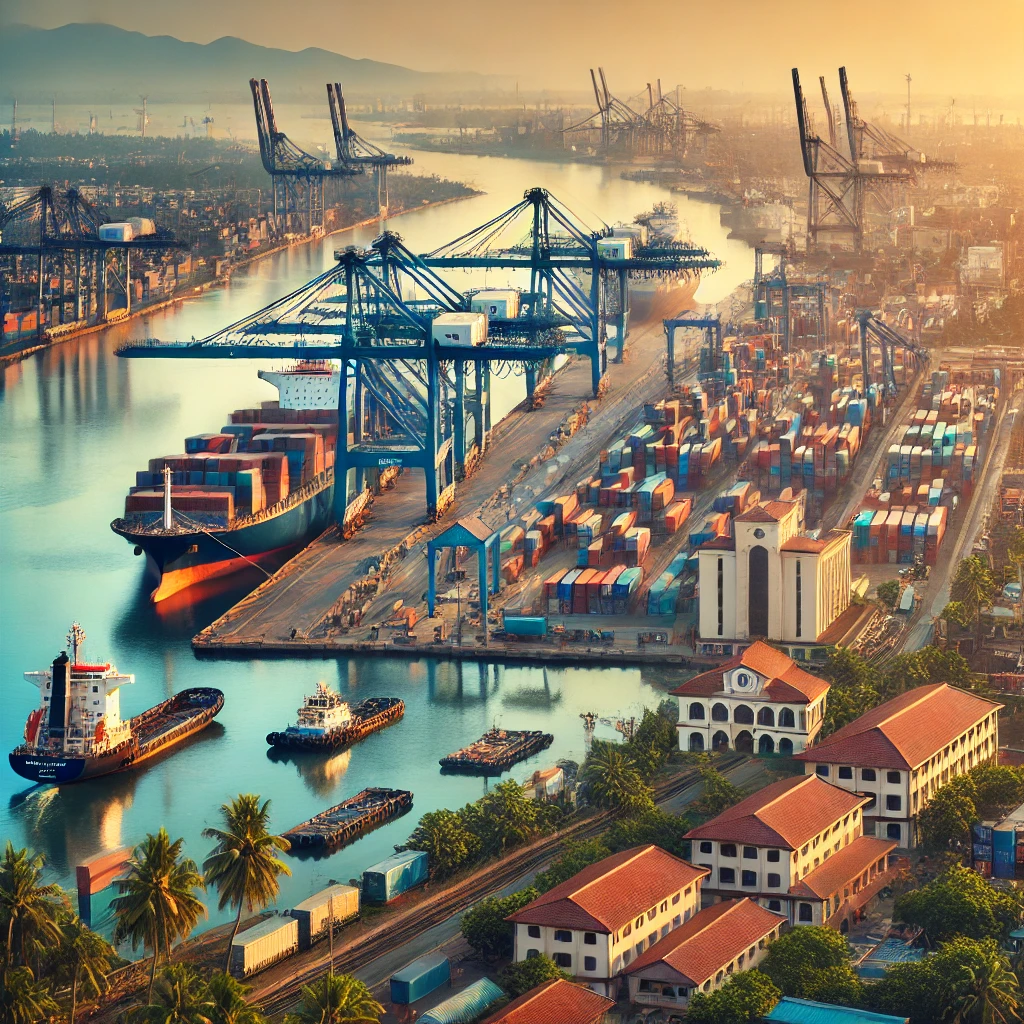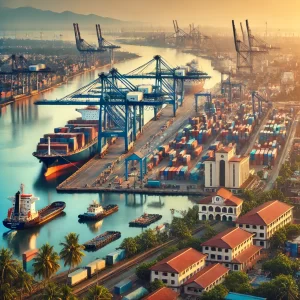How Marine Trade is Boosting Kochi’s Economy


Kochi’s bustling harbor, showcases its vibrant marine trade.
Kochi, often referred to as the ‘Queen of the Arabian Sea,’ holds a rich legacy of maritime trade. Nestled along the Malabar Coast in Kerala, this vibrant port city has been a pivotal player in global trade for centuries — from ancient spice routes to modern transshipment hubs. Today, Kochi stands as a driving force in Kerala’s economy, with marine trade playing a monumental role. Let’s dive into how Kochi’s strategic location, historical relevance, and modern infrastructure continue to boost its economy on a global scale.
A Glimpse into Kochi’s Trade History
Kochi’s history is intertwined with trade. As early as the 14th century, it emerged as a prominent spice trading center, attracting merchants from Arabia, China, and later Europe. The Portuguese were the first Europeans to establish a settlement here in 1503, followed by the Dutch and the British, all drawn by the lucrative spice trade.
Pepper, often called ‘Black Gold,’ along with cardamom, cloves, cinnamon, and ginger, made Kochi a bustling trading hub. The city’s natural harbor, one of the finest on India’s western coast, became a strategic point for maritime activities. This rich trading heritage laid the foundation for Kochi’s modern economic strength.
Kochi: Kerala’s Gateway to Global Trade
Today, Kochi remains Kerala’s primary conduit for international trade. The city’s port — the Cochin Port — handles a significant portion of Kerala’s external trade, making it an indispensable gateway for exports and imports. Its deepwater, all-weather capabilities give it a natural edge over other regional ports.
The International Container Transshipment Terminal (ICTT) at Vallarpadam, part of the Cochin Port, is India’s first transshipment terminal. This terminal positions Kochi as a key player in global logistics, reducing India’s dependency on foreign ports like Colombo or Singapore for transshipment. This facility enhances trade efficiency, reduces costs, and attracts more international cargo traffic.
Key Exports Fueling Kochi’s Economy
Kochi continues to be a leading export hub, especially for Kerala’s famed products. Some of the key exports include:
- Spices: Pepper, cardamom, ginger, nutmeg, and cloves remain the most sought-after exports, with rising global demand for organic and sustainably sourced spices.
- Marine Products: Kochi plays a massive role in exporting frozen shrimp, fish, and other seafood products, contributing significantly to India’s marine export sector.
- Cochin Shipyard: One of India’s largest shipbuilding facilities, Cochin Shipyard supports the economy through shipbuilding, maintenance, and offshore services.
- Other Goods: Rubber, tea, coffee, coir products, and cashew also contribute to Kochi’s diverse export portfolio.
What Makes Kochi’s Port So Favorable for Trade?
Several factors make Kochi a preferred destination for maritime trade:
- Natural Harbor: Kochi’s port boasts deep waters and excellent navigability throughout the year, allowing large cargo ships to dock with ease.
- Modern Infrastructure: The port offers advanced container handling facilities, ship repair yards, and even cruise terminals — positioning it as a versatile maritime hub.
- Connectivity: Kochi enjoys robust multi-modal transport connectivity:
- Sea routes link Kochi to major global markets across Europe, the Middle East, and Southeast Asia.
- Cochin International Airport supports air cargo, enabling the rapid export of perishable goods.
- Road and rail networks seamlessly link the port to Kerala’s industrial zones and neighboring states.
- Logistics Support: Vallarpadam’s transshipment terminal reduces cargo turnaround times, ensuring quicker access to international shipping routes.
A Global Perspective: Kochi’s Role in International Trade
Kochi’s maritime trade extends far beyond national borders. As global supply chains evolve, Kochi has positioned itself as a key player in international commerce:
- Rising Global Demand: Spices from Kerala are witnessing surging demand in Europe and North America due to the growing preference for authentic, organic flavors.
- Marine Products: India is among the top exporters of shrimp globally, and Kochi plays a vital role in ensuring these exports reach markets efficiently.
- Blue Economy Vision: India’s focus on the ‘Blue Economy’ — sustainable ocean-based development — places Kochi at the center of maritime innovation, resource management, and eco-friendly shipping.
Economic Ripple Effects of Marine Trade
Marine trade doesn’t just boost exports — it fuels Kochi’s economy in numerous ways:
- Employment Generation: Thousands of jobs are created in port operations, logistics, warehousing, fisheries, and shipbuilding industries.
- Tourism and Hospitality: Kochi’s growing cruise tourism, supported by its port, attracts international visitors, benefiting local businesses and cultural tourism.
- Urban Development: The revenue generated from marine trade supports urban infrastructure development, enhancing Kochi’s appeal as a modern, thriving city.
Challenges on the Horizon
While Kochi’s marine trade is flourishing, it faces a few challenges:
- Competition from Other Ports: Major ports like Mumbai, Chennai, and Mundra offer strong competition. Kochi must continuously upgrade infrastructure and streamline processes to maintain its edge.
- Environmental Concerns: The coastal region must balance economic growth with environmental preservation, especially given Kerala’s rich biodiversity.
- Global Market Fluctuations: The trade landscape is shaped by international demand, shipping costs, and geopolitical factors — areas where Kochi must stay resilient.
The Road Ahead: Kochi’s Future as a Trade Powerhouse
Kochi’s future as a maritime trade giant looks promising. Investments in port infrastructure, digital logistics, and sustainable practices will strengthen its global competitiveness. The city’s rich trading legacy, combined with modern advancements, ensures that Kochi remains a vital player in India’s economic growth story.
In the ever-evolving landscape of global trade, Kochi is not just keeping pace — it’s setting the course for a brighter, more connected future.
0 Comments